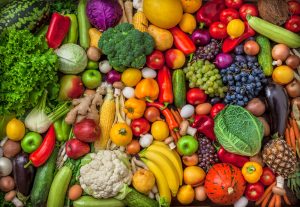 When I was a kid, like many other people, I thought vitamins were pills I had to take.
When I was a kid, like many other people, I thought vitamins were pills I had to take.
Some people still think that.
Advertisement
But the truth is that vitamins are nutrients we make ourselves or get from food. Sure, supplements may be an attractive option for parents who can’t get their kids to eat their vegetables, but is it something you want to be spending your money on as an adult?
Multivitamin supplements can be helpful, sometimes. There are specific populations that are well-served by taking a supplement. Nutrient absorption can decrease with age, so pills can serve as an insurance policy.
Supplements, of course, are never a substitute for food.
If you’re not sure what to eat but don’t want to think about taking a multivitamin every day, here are some foods that should definitely be on your shopping list.
Eggs: Eggs are one of the most nutrient-dense foods you can get; that’s why they’ve earned the moniker “nature’s multivitamin.” They even have vitamin D, which is only available in a minimal and select number of food.
Leafy Greens: Leafy greens top the charts when it comes to being great sources of micronutrients and antioxidants. Vitamins A, C, E, and K are available in whichever variety you choose, and some, like broccoli and bok choy, are rich in B-vitamins, too.
Pears: Pears are a great source of fiber, vitamin C, potassium, and vitamin K. They are also rich in pectin, a form of fiber that can help improve gut health.
Advertisement
Tomatoes: Tomatoes are high in several antioxidants. They are a great source of lutein, which can help maintain eye and vision health. Tomatoes are perhaps best known for lycopene, the antioxidant that gives them their bright red color. Lycopene is associated with heart benefits, prostate health, and more.
Nuts: Nuts are also a great source of nutrition. Although the nutritional profile can vary between nuts, all of them are healthy. They all feature healthy fats, fiber, and plenty of micronutrients and antioxidants.
